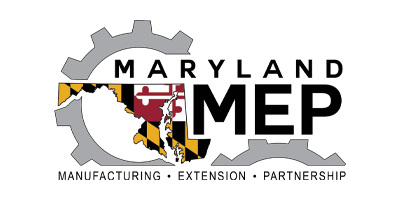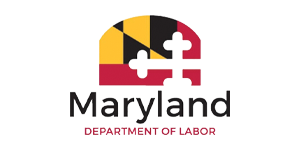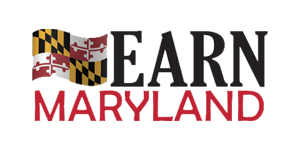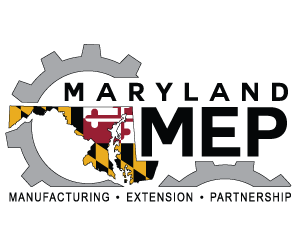FUTURE LEADERS
PROGRAM
Leadership requires the ability to understand oneself as well as the needs of others and recognize how our behaviors and preferences impact those we lead. This program is designed to build self-awareness, self reflection, and confidence as employees prepare for management and leadership roles.
Participants will leave this program with a deeper understanding of their strengths and development opportunities, and the impact their style has on others so they can lead in a way that cultivates compassion, empathy, peak performance, and results.
Participants will attend 7 sessions (held virtually through Zoom) from 12:00pm – 3:00pm
Program topics include:
This session will introduce modern leadership–the foundation of exceptional leadership, and compare it to more traditional leadership. We will cover:
- What is leadership?
- What is modern leadership, and how is it different than traditional leadership?
- What is the difference between management and leadership?
- What does it take to be a leader?
- What are the important competencies of leadership? (support, coaching, engagement, feedback)
- What does it take to lead in today’s environment?
- How to lead different generations
We will start the program by discovering each participant’s personal talents and strengths. Each person will complete the StrengthsFinder assessment to discover their top five talents that can be leveraged in their work and as a leader.
Laurie will share data from the Gallup organization about the link between understanding strengths and higher performance, and take participants through several exercises both individually and in teams to deepen the learning.
Myers-Briggs is a personality type indicator that helps individuals understand their four mental function preferences and the influences these preferences have in work and life.
This session will focus on helping participants understand their own work and life preferences and those of others. Each participant will take the Myers-Briggs Type Indicator and receive a personal report with their preferences. Laurie will assist individuals in understanding their type, and provides strategies for better communication and problem solving.
The group will also participate in a team building exercises to ground the concepts of how preferences impact work, communication, and management styles.
How individuals take in information, make decisions, and deal with the outside world impacts behaviors and leadership. Participants will learn how their personal style can impact leading others, and how to improve communication, and adjust their style to the needs of their followers.
In this session, we focus on defining personal values and values based leadership, and helping leaders uncover their individual values and how they impact their leadership. We also cover personal branding, and how to purposefully craft your leadership brand.
We will cover:
- What are values, and how do they impact our life?
- How values can be positive or potentially limiting.
- How values are a reflection of our own needs.
- What is values-based leadership, and how do personal values impact leadership?
- How your values impact your behaviors and actions.
- How to lead yourself so you can effectively lead others.
- What is the role of a leader at the organization?
- What is a leadership brand, how does it impact how you are perceived, and how to craft your brand.
We will lead and exercise around discovering each leader’s personal values and develop deeper understanding of how these values show up as a leader and impact the team. The purpose of this session is to bring clarity around personal values, as well as help leaders to see that they need to be able to effectively lead themselves to lead others.
We will also explore what a leadership brand is, and how to craft your leadership brand. Participants will learn how to determine the gap between how they are perceived and how they want others to perceive them, as well as strategies for enhancing their leadership brand.
Emotional intelligence is the ability to perceive, control, and evaluate emotions. The most successful leaders have the ability to monitor their own feelings as well as the emotions of others and use this information to guide their thinking and actions. Emotional intelligence has been proven to be a key indicator in human performance and development potential.
Participants in this interactive and engaging workshop will complete the EQ-i 2.0 assessment–the first scientifically validated emotional intelligence tool in the world. Each participant will receive a confidential personalized report that includes results of their emotional intelligence on 16 elements, a customized and detailed summary of each element with tailored suggestions for improvement, and an action plan and development guide. We will spend the session debriefing the assessment to give participants a clear understanding of their current emotional intelligence as well as how they can leverage their strengths and identify areas for development to improve their emotional intelligence over time.
We will also discuss the importance of emotional intelligence in leadership, and how EQ is just as important, or often more important than IQ.
Leadership requires the ability to collaborate and effectively work with other people. To be successful as a leader, you need to be able to connect, influence, and communicate.
This module will share strategies for managing and influencing key relationships such as boss, peer, and direct report relationships. We will also touch on how to make the leap from peer to manager, as well as effectively manage former peers.
This module will focus on the traits and habits that set the most successful leaders apart from others. You will learn how to create the most productive day and to instill habits that lead to increased success.
We will cover:
- Learn the three things that set successful people apart from ordinary people
- Learn the #1 mistake people make that holds them back from achieving their goals and how to overcome it
- Learn how to develop powerful habits and the mindset necessary for success
- Instill accountability and ownership, and encourage employees to become more action oriented
- Reduce blaming and complaining, and instill more team collaboration
Program Champions



Program Coordinator
For more information about the Future Leaders Program, please contact:
Sara Keith
Registration is open for the 2025 Future Leader Training Program.
Registration for the 2024 Future Leader Training Program has closed. Stay tuned for the 2025 Program!


About the Instructor:
Laurie J. Maddalena MBA, CSP, CPCC
CEO, Envision Excellence
Laurie Maddalena is CEO of Envision Excellence, a leadership development consulting firm that provides leadership development programs for managers and executives, executive and leadership coaching, management training, Myers-Briggs facilitation, Emotional Intelligence surveys and leadership assessments. Laurie has been personally mentored by Jack Canfield, author of The Success Principles, and is a certified Success Principles Trainer.
Laurie is a member of the National Speakers Association (NSA), and is a Certified Speaking Professional (CSP), a designation earned by less than 15% of speakers worldwide. She writes a monthly online column for next generation leaders for CUES, is a contributing writer on leadership for The Huffington Post and CUInsight, and has published articles in Credit Union Management.
She is a contributing author to the international best-selling book, Women Who Empower.
Laurie has worked directly with Brené Brown, a bestselling author and researcher, and is a certified Dare to Lead™ facilitator.
Prior to establishing her own coaching and consulting business, Laurie served as Vice President of Human Resources/Organizational Development at Montgomery County Teachers Federal Credit Union (MCT). Under Laurie’s leadership, MCT was awarded the “Excellent Place to Work” designation by the Maryland Work~Life Alliance for seven years in a row.
Laurie earned a Master of Business Administration (MBA) degree and a Master of Science degree in human resources/organizational development from The University of Maryland, University College. She also earned a bachelor’s degree in speech communication from Syracuse University. Laurie is a certified executive coach through The Coaches Training Institute, and completed team and organizational coaching training through The Center for Right Relationship and Team Coaching International.
Laurie lives in Maryland with her husband, Rino, and their three young children, Olivia, Luca and Clara. She loves good food and wine (especially Cabernet Sauvignon), plays tennis, is an avid reader and cappuccino lover.


